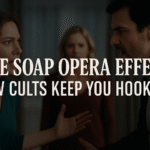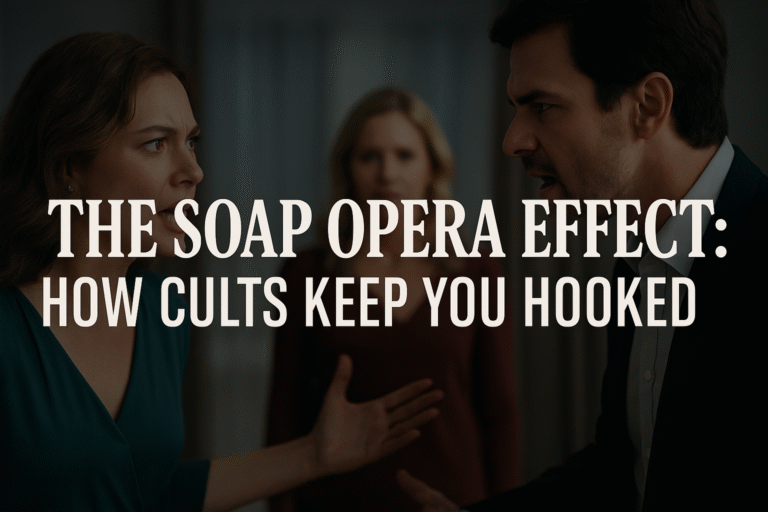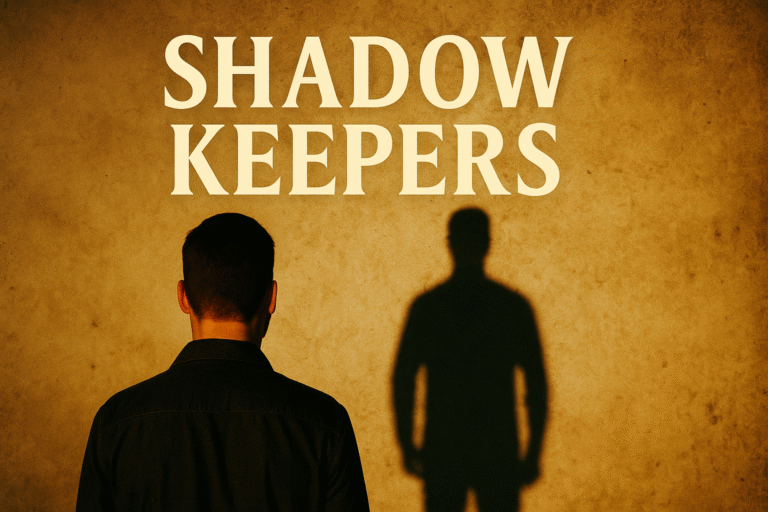Colossians 2:16–17 — What PCG Teaches vs. What Paul Really Said
Colossians 2:16–17 — What PCG Teaches vs. What Paul Really Said
Using direct quotations from Stephen Flurry (Philadelphia Church of God) alongside the Greek, the context, and the wider New Testament.
Colossians 2:16–17 is frequently cited by the Philadelphia Church of God (PCG) to justify church authority over Sabbath and holy days. Below is a concise Q&A that presents PCG’s own words and then explains the text in context.
Q1: How does PCG explain Colossians 2:16–17?
PCG quote: “Understand the meaning! ‘Let no man judge you in meat, or in drink, or in respect of an holyday, or of the new moon, or of the sabbath days … but the body of Christ.’ In other words, don’t let a man determine what is right or wrong about which days to observe. These matters should be determined by the Body of Christ—or the Church (see 1 Corinthians 12:27).” — Stephen Flurry, Did Christ Abolish the Sabbath?, The Philadelphia Trumpet, May 2010.
What the text says: In Greek, “let no one judge you” (mē tis hymas krinetō) is a negative imperative — a prohibition against being judged, not permission to replace one judge with another. The clause “but the body of Christ” (to de sōma tou Christou) sits inside Paul’s shadow vs. substance contrast: festivals/new moon/Sabbaths are shadows; Christ is the substance (the “body” that casts the shadow). It is not an ecclesiastical exception clause.
Q2: Does PCG acknowledge the Colossians were Gentiles—and use that to support its view?
PCG quote: “Before coming into God’s Church, the Gentiles had never observed God’s Sabbath command. Yet Paul tells them to not let any man judge them with respect to the Sabbath or holy days. Why would he write something like that if these people had never kept those days in the first place?” — Flurry, Did Christ Abolish the Sabbath?, Trumpet, May 2010.
Response: Paul’s instruction stands regardless of their past practice. The issue he addresses is who has authority to judge, not whether the Colossians had previously kept those days. His emphasis across Colossians 2:8–23 is Christ’s sufficiency and freedom from human regulations.
Q3: How does PCG treat the “shadow” metaphor?
PCG quote: “You cannot separate the shadow from its object… If you take away the shadow, there is no tree. Why would you take away the Sabbath if it is a shadow of things to come—God’s millennial rest?” — Flurry, Did Christ Abolish the Sabbath?, Trumpet, May 2010.
Response: Paul’s point is the reverse: once the reality (Christ) has arrived, the shadow is no longer binding (Hebrews 10:1). The calendar observances were signposts pointing to Christ; you don’t keep living by the signpost when you’ve arrived at the destination.
Q4: PCG argues the Sabbath is “not yet fulfilled” because Paul says “shadow of things to come.” Is that right?
Short answer: No.
- The phrase “things to come” describes the forward‑pointing nature of the shadow, not an ongoing covenantal obligation after Christ has come.
- Analogy: A pregnancy test points to a coming baby. The baby may still be “to come” in growth and future, but once the baby is here, you don’t keep taking tests to relate to the child. Likewise, once Christ (the reality) is here, you don’t return to the shadow to define your standing.
- Hebrews 4:3,10 teaches that believers now enter God’s rest in Christ; the weekly sign that pointed to that rest is fulfilled in Him (Colossians 2:16–17).
Q5: What is PCG’s bottom line, and what’s missing?
PCG quote: “Don’t let any man decide what’s right and wrong with respect to the Sabbath. Just follow Christ’s example.” — Flurry, Did Christ Abolish the Sabbath?, Trumpet, May 2010.
Response: In PCG’s usage, “follow Christ’s example” means “keep the seventh‑day Sabbath.” But Paul’s actual point in Colossians 2 is not to reinforce the shadow; it’s to keep believers from being judged by it, because the substance is Christ.
Q6: Why does PCG insist “body of Christ” here means “the Church”?
PCG quote: “These matters should be determined by the Body of Christ—or the Church (see 1 Corinthians 12:27). And the Church establishes doctrine by what is inspired in the holy Word of God.” — Flurry, Did Christ Abolish the Sabbath?, Trumpet, May 2010.
Response: That is a context swap. In 1 Corinthians 12, “body of Christ” refers to the church (unity/gifts). In Colossians 2:17, “body” functions within a metaphor (shadow vs. substance). For Paul’s argument to work, “body” must mean the reality (Christ), not an institution empowered to judge calendar observance.
Q7: Even if “body of Christ” did mean “the Church,” would PCG’s conclusion follow?
Still no. The New Testament’s ekklesia = the called‑out ones (the whole community of Spirit‑led believers), not one human hierarchy. At most, the verse would imply collective, Spirit‑led discernment (“judge for yourselves,” 1 Cor 10:15; 6:2–3) — which contradicts the idea of exclusive organizational control.
Q8: “Repentance is from sin; sin is transgression of the law.” Doesn’t that send us back to Sabbaths/holy days?
Only if you flatten “law.” In the NT, “law” can mean the Sinai covenant, God’s moral will, or even a principle/power (see Romans 2; 7). Paul warns Gentile believers against bondage to “days, months, seasons, years” (Gal 4:10–11). Jesus locates sin in the heart (Mark 7:20–23). Repentance is turning from unbelief and self‑rule to Christ (e.g., Acts 2:38; 17:30–31; 26:20) — not returning to the calendar shadows Christ fulfilled.
Q9: Why didn’t the apostles set themselves up to “judge everything” (Acts 15)?
At Jerusalem, the apostles addressed a gospel crisis (circumcision-for-salvation). Their letter laid on Gentile believers “no greater burden than these essentials” for table fellowship (Acts 15:28–29) — not a system of comprehensive ecclesiastical rulings on every observance. The pattern is Christ’s headship, apostolic teaching, and Spirit‑led community — not perpetual judgment by calendar.
Final Word
PCG’s reading effectively transforms Paul’s message from “Don’t let anyone judge you — Christ is the reality” into “Let only us judge you — we decide observance.” But Colossians 2:16–17, in its grammar, metaphor, and context, calls believers out of judgment by shadows because the substance is Christ.






